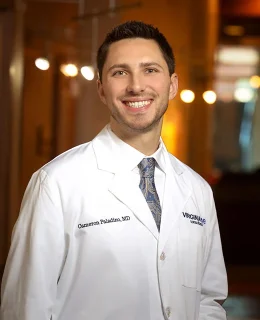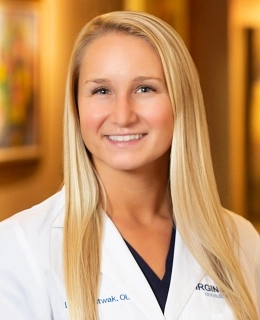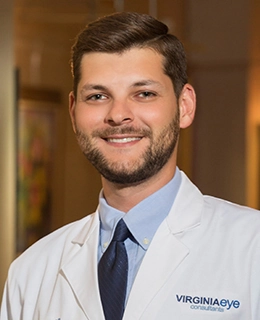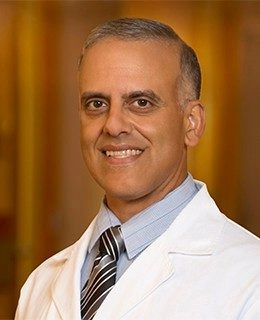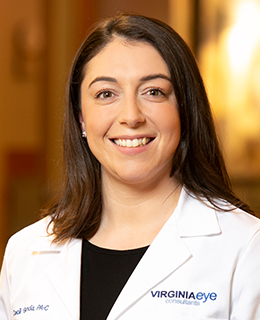
Presbyopia Treatments in Norfolk, Virginia
Presbyopia—often referred to as “old age vision”—is a condition that eventually affects everyone. It is caused by the natural aging of the eyes, due to the lens losing flexibility, and it gradually leads to a loss of near vision. Those suffering from presbyopia typically have to start wearing glasses to focus on close-up objects, or they start holding reading materials away from their eyes to see them better. Although presbyopia can be a nuisance, our team at Virginia Eye Consultants offers a number of advanced treatments to provide a more convenient method of restoring near vision.
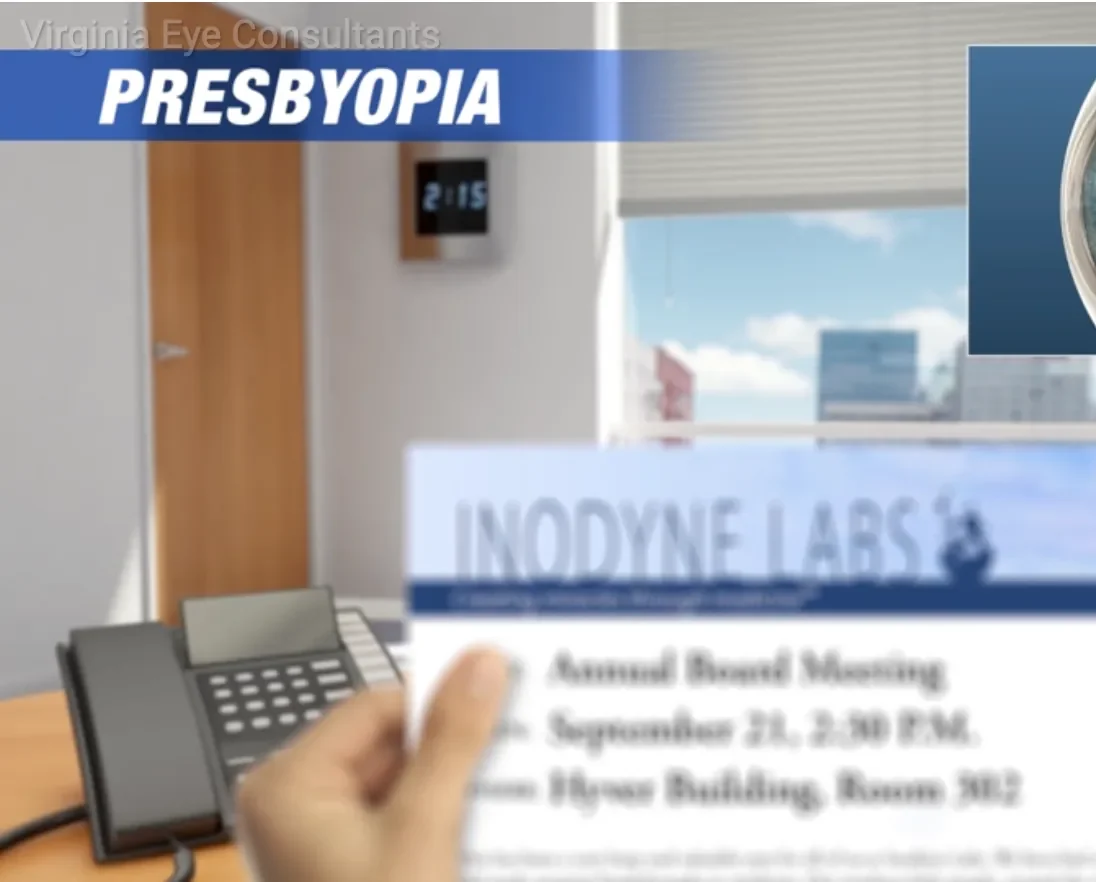
Causes & Symptoms
When a person is young, the natural lens of the eye is soft and flexible enabling it to change shape to focus on near objects. As the eye ages, however, the lens loses its flexibility and can no longer vary the focus of the eye. This condition usually becomes noticeable between 40 and 50 years of age.
People with normal vision up to that time find it increasingly difficult to focus on near objects, like words on a page, and need to resort to wearing glasses for reading and other close up activities. Those who have their vision brought to a normal range (20/20) with refractive surgery can expect this same condition to develop as their eyes age. The most common treatment for presbyopia is reading glasses—or “readers”—which compensates for the near vision loss, allowing you to see better up close.
Diagnosis of Presbyopia
After a thorough medical examination of the eyes, the physician will conduct one or more of the following tests to confirm diagnosis of presbyopia:
- Visual acuity
- Retinal examination
- Refraction test
- Slit-lamp test
Although presbyopia cannot be cured, once the diagnosis has been confirmed, the condition can be easily treated.
Treatment of Presbyopia
Treatment of presbyopia is designed to help patients focus clearly on nearby objects. This can be accomplished nonsurgically or with a surgical procedure.
Nonsurgical Correction of Presbyopia
Presbyopia can be easily addressed by getting one of the following types of corrective lenses:
- Reading glasses
- Bifocal or trifocal eyeglasses
- Progressive eyeglasses
- Multifocal contact lenses
- Monovision contact lenses
Corrective eyeglasses are available over-the-counter for simple, more minor corrections: from 1.00 diopter to 3.00 diopter. Patients who require greater correction for near vision, or who also have farsightedness or astigmatism, will require prescription lenses.
Monovision contact lenses, to which most, but not all, patients can adjust, correct for distance vision in one eye and close vision in the other.
Surgical Correction of Presbyopia
There are several methods to treat presbyopia with surgery. These include:
- Refractive surgery, such as keratoplasty (CK) or laser surgery
- Intraocular lens implants or IOLs
- Corneal inlays
Patients should be aware that any surgical procedure carries some risk and that most eye surgeries are not reversible.
Presbyopia is part of the normal aging process and, though at times troublesome and annoying, can fortunately be effectively treated in a number of ways.
Convenient Locations in and around Norfolk or Virginia Beach We Look Forward to Seeing You!

200 Corporate Blvd,
Norfolk VA, 23502

2234 Cunningham Dr,
Hampton VA, 23666

241 Corporate Blvd,
Norfolk VA, 23502

241 Corporate Blvd,
Norfolk VA, 23502

2463 Pruden Blvd,
Suffolk VA, 23434

2020 General Booth Blvd,
Virginia Beach VA, 23454

465 N Great Neck Rd,
Virginia Beach VA, 23454
Contact Virginia Eye Consultants
Have questions about presbyopia? Contact us to schedule an appointment to learn which treatment option is best for your needs.
The doctors at Virginia Eye Consultants have either authored or reviewed the content on this site.
